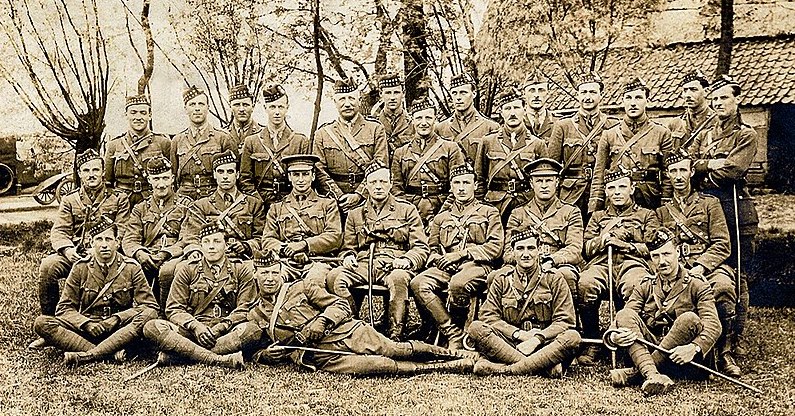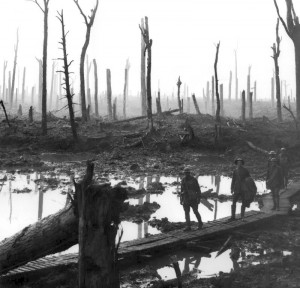
Centenary of the Great War: Let the Spin Begin

Tristram Hunt on the Great War
I didn’t expect to find myself agreeing with Labour’s Shadow Education Secretary Tristram Hunt. But take a look at his Great War article “Bashing History,” and see what you think.
We’re going to be reading a lot of silly nonsense about the Great War in the next year or two, and Hunt’s preemptive strike is a salutary warning.
His piece recalls a poetic answer to Eric Bogle’s famous poem “Willie McBride,” written by Stephen Suffet in 1997:
Ask the people of Belgium or Alsace-Lorraine,
If my life was wasted, if I died in vain.
I think they will tell you when all’s said and done,
They welcomed this boy with his tin hat and gun.
For the text of both poems, click here.
Churchill’s Great War prediction, 1911
The German armies in advancing through Belgium and onwards into France will be relatively weakened by all or any of the following causes: [casualties, continually extended lines, troops to invest or besiege captured towns, the allied armies, British blockade and Russian pressure in the east]….
All these pressures will develop simultaneously and progressively. By the fortieth day Germany should be extended at full strain. [The] strain will become daily more severe and ultimately overwhelming, unless it is relieved by decisive victories in France. If the French army has not been squandered…the balance of forces should be favourable after the fortieth day. For the German armies will be confronted [by] an ever-growing need for a successful offensive…. Opportunities for the decisive trial of strength may then occur. —Churchill, The World Crisis, vol. I, 62-63.
From WSC’s Cabinet memorandum, “Military Aspects of the Continental Problem.” His prediction was almost exact. On 12 September, forty-one days into the war, French and British forces stopped the German advance at the Marne. This prevented any chance of an outright German victory.
Great War reflection, 1940
During the first four years of the last war the Allies experienced nothing but disaster and disappointment. That was our constant fear: one blow after another, terrible losses, frightful dangers. Everything miscarried. And yet at the end of those four years the morale of the Allies was higher than that of the Germans, who had moved from one aggressive triumph to another, and who stood everywhere triumphant invaders of the lands into which they had broken.…
During that war we repeatedly asked ourselves the question: How are we going to win? And no one was able to answer it with much precision, until at the end, quite suddenly, quite unexpectedly, our terrible foe collapsed before us, and we were so glutted with victory that in our folly we threw it away. —Churchill, House of Commons, 18 June 1940
1940, 18 JUNE.







2 thoughts on “Centenary of the Great War: Let the Spin Begin”
Thanks. I agree with both your sentiments.
I actually admire Eric Bogle’s “No Man’s Land,” also known as “The Green Fields of France,” and I sympathize with Bogle’s antiwar message. Nevertheless, I wrote “Willie McBride’s Reply” to show that there was another side of the story, and to give voice to the countless young men (and some women) who served in the Great War because they honestly believed the Allied cause was honorable and just. Whether history proved them right is entirely another matter.
Comments are closed.